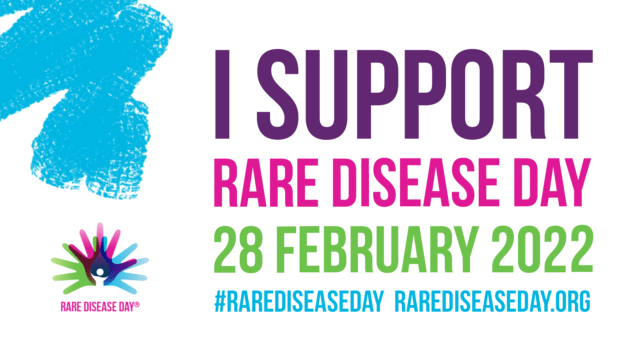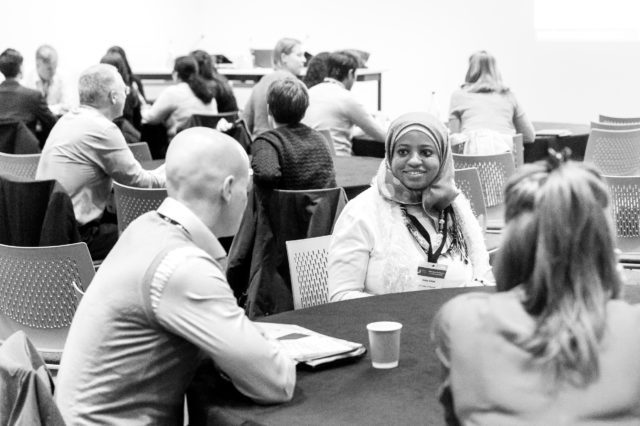NCRI Consumer lead, Emma Kinloch, shares her thoughts on research into rare cancers on rare disease day 2022. This article represents the thoughts and input of many NCRI Consumer Forum members.
Within the world of rare cancers, examples abound of missed and misdiagnoses, leading to more extensive treatments and poorer prognoses. Cancers with no known risk factors and indistinct symptoms lead to hospital admissions, diagnoses ‘by accident’ and blank faces when the cancer is named.
Treatment options are likely to be limited, if available. Recurrence and metastatic disease rates are too high. Specialist centres to be referred to, are limited, and that’s assuming you live, of course.
Organisations today will showcase their work raising awareness, supporting patients, moving things forward, and we need guidelines, quality standards and audits, training, and equal access to treatments for all. Our specific focus today, though, is rare cancer research.

Tumour profiling
Advances in biomedical research now allow patients to have their tumours profiled. If you’re very lucky, this examination may yield an ‘actionable target’ i.e., identification of a mutation in the sequence of the tumour that can be treated with an existing, available drug. Or there could be a trial for a new drug to consider. Otherwise, you have a read-out of your tumour with a list of mutations that might possibly, in the future be ‘druggable’ – or not – and always remember, not all mutations are tested for… it’s a good start though and should ensure that patients are no longer mistreated with drugs that do not work on their specific genetic combinations.

Increasingly, anatomical site ‘agnostic’ support groups and organisations are appearing. These bring together patients with cancers that occur in different anatomical sites, but that have the same tumour mutation or biomarker or are the same cancer type. They provide a population of patients potentially all eligible for the same new drug trial.
Why then are we not routinely seeing ‘basket trials’ i.e. combining these patients into one research study? Especially at the novel agent phase I/II stages? Are we too often restricting ourselves to trials focussed on site-specific communities of patients and not challenging ourselves when it comes to trial design? Some might argue that an anatomical site-specific view is just looking at a group of disparate lumps that just happen to occur in the same place.
These patient groups and organisations can assist with research by joining up clinicians and alerting the patient community to trials. If you need more patients – ask us to help.
The numbers
Back to trial design. Statistically valid trials need sufficient numbers of (often scarce) patients which can lead to years of potentially unrealistic recruitment. Let’s be better at trial methodology for rare cancers. Let’s include Bayesian-designed trials to specifically address the numbers challenge. How about new statistical approaches e.g. generalised pairwise comparison, ‘experience’ measurement, use of patient-reported outcomes (PROs) as targeted tools for supporting primary outcome assessment? Let’s capture smaller effects.
And we should always contemplate the question ‘is a control arm really necessary’?
With the data and samples of rare cancer patients being in short supply, they clearly need to be correctly categorised, collected and annotated. To move research forward, we need to share this precious data and samples (appropriately) with those who want to do the research. Information existing in silos is of no benefit when there’s not enough of it to be meaningfully utilised. Registry projects should be supported, appropriately governed and contributed to, by both institutions and individuals.

Of course, collaborating effectively UK-wide and internationally greatly assists with increasing the trial numbers. There are many cross-border challenges with different healthcare systems, treatment options and funding processes, yet these should not be roadblocks to increasing collaboration and smoothing the way for patients to take part in trials outside of the country they are living in. They are simply hurdles to jump over.
And the regulation….
Both in the UK and beyond there have been a notable number of consultations for new legislation, regulation and processes that touch on rare cancers and include funding for treatments, and strategies. Good. May these ‘oil the wheels’ of faster approvals, improved decision-making processes and patients not having to wait years until a drug or treatment, that will save their life, is available.
Across continents and regulators, we are increasingly seeing more ‘joined-up thinking’ and consistency in approaches to how the research arena is governed and regulated. This must surely, in turn, mean the movement of patients to access trials and treatments across borders is made easier?
Research strategies
Coming ‘back home’ though, to the NCRI and the amazing work that all who are involved do. How many NCRI Group strategies mention rare cancers, either by name or by implication? Are there enough groups prioritising rare cancers within the groups remit? Is it good enough that if no one is ‘interested’ in researching a specific rare cancer, that no one does? Where are the cross-cutting biomarker-driven research groups to work alongside the site agnostic patient support groups that were mentioned above? If anyone needs a suggestion of where to start, we have many.
With the advent of the NCRI Networks inviting membership from the UK and beyond, there is a real chance to foster collaboration and ‘move the dial’ for these cancers with huge unmet needs. If you are interested in researching any rare cancer, please get involved.
Lastly
In a world with new diagnostic tools such as circulating DNA, liquid biopsies, cyto-sponges, breath tests, that all can help with the tumours that are ‘hard to reach’ (because we cannot easily biopsy them), or the cancers of unknown primary (CUP), surely we see the ‘hard to diagnose’ cancers be diagnosed earlier? Can artificial intelligence be developed to assist? Work is already underway in some areas, such as pathology.

And what about ‘decentralised trials’ leveraging technological enhancements, which can facilitate greater patient inclusion by sending products to those in remote locations? No doubt operational challenges exist, and appropriate and robust methodologies, strategies, frameworks and governance need to be created. Nevertheless, they do hold great promise.
Are there ringfenced pots of money sitting in disparate institutions that could be joined up? Who is thinking about that?
About the NCRI Consumer Forum
The NCRI Consumer Forum houses many rare cancer patients and carers. We are not separated into silos or institutions with boundaries. We do not have concerns that conversations might be ‘career limiting’. We are involved with groups of patients and charities beyond the forum. We are members of networks, projects, trials and think tanks. We are involved, and we’re here to help.